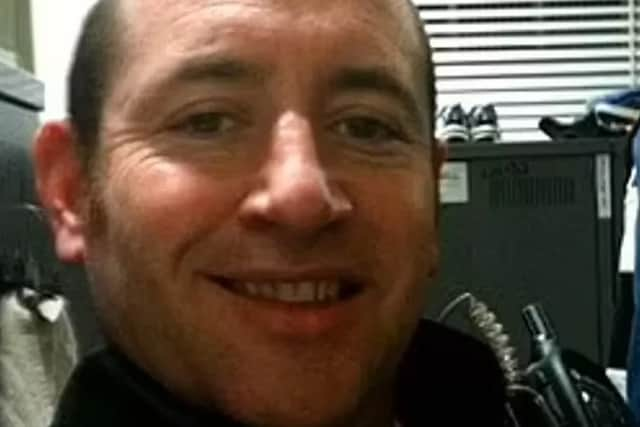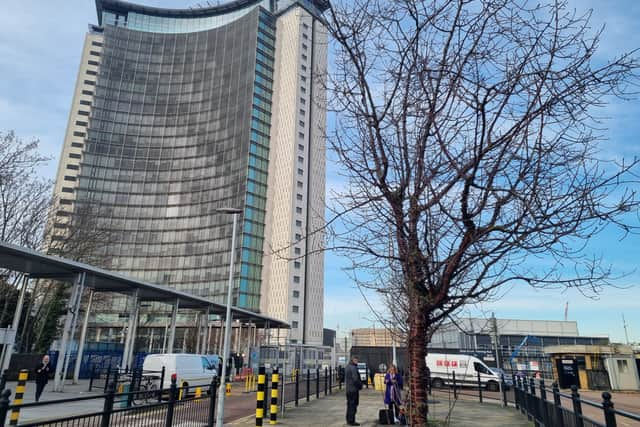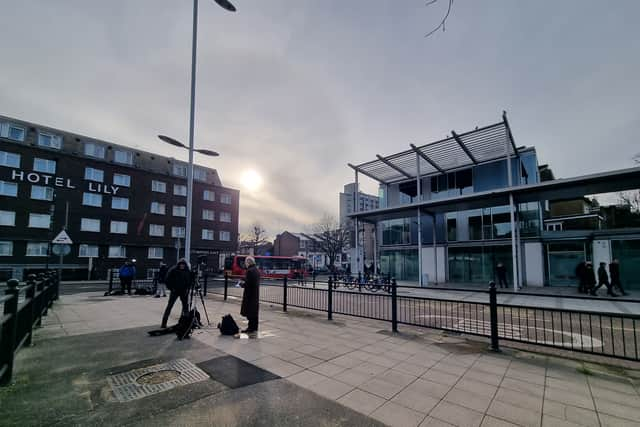‘I watched the Met Police sack David Carrick - but I’ll believe they ‘get it’ when I see it’
and live on Freeview channel 276
Yesterday, David Carrick - who has pleaded guilty to 49 offences - including 20 counts of rape - was a police officer.
He’s been a police officer since 2001, when he joined the Met, and began protecting nine million Londoners, and as of 2009, an armed guard at high-security government premises.
Advertisement
Hide AdAdvertisement
Hide AdAnd since 2004, until 2020, Carrick, 48, emboldened by his warrant card, has conducted what can best be described as a decades-long campaign of terror against women.
Women he met on dating apps, women he urinated on, degraded, coerced. Women he was in relationships with. Women he brutalised.
At least 12 specific women and - in his remorseless trampling on our collective confidence and trust in law enforcement - women in general.


But today, after a two hour misconduct hearing, he was a police officer no longer.
Advertisement
Hide AdAdvertisement
Hide AdLondonWorld attended Carrick’s accelerated tribunal, held in a nondescript office-like room, in a compound in west London.
We were ‘in the room’ - or as close as the Met would let us get.
Journalists were corralled into a separate building, where we watched the proceedings on two television screens, via a frustratingly glitchy video link feed, while scribbling notes.
We watched senior Met Police staff, advisors and lawyers troop dutifully into the room.
Advertisement
Hide AdAdvertisement
Hide AdSubmissions were made - that Carrick’s harm was “catastrophic”; his damage to the force’s reputation “immeasurable” - and not a squeak of defence of his actions was heard.


Naturally, Carrick, currently behind bars awaiting sentencing, and expected to serve life, was not in attendance. He had no representation, made no submission of his own, or via any intermediary.
A Police Federation representative, attending via audio link, was present merely as an observer. The tone was grave, resolute, and thorough.
And the conclusion when it came was - rightfully, inevitably - an immediate disbarment without notice, followed by an immediate cutting off of the video feed.
Advertisement
Hide AdAdvertisement
Hide AdYet assistant commissioner Louisa Rolfe was bound by College of Policing regulations.
She was instructed to administer the “least” severe outcome deemed appropriate, while still protecting the public, and maintaining the force’s high standards and confidence.
And no criminal conviction - however serious - results in an automatic sacking for any police officer.


For Carrick, nothing less than the immediate dismissal he received would have been possible.
Advertisement
Hide AdAdvertisement
Hide AdBut the thoughtful, detailed conversations on culpability, the extent of harm done, the aggravating and mitigating circumstances, led me to apply those principles to the Met itself.
Culpability extends not only to Carrick, but the institution itself.
Repeated allegations of assault and harassment; an arrest - an actual arrest - for rape by Hertfordshire Police, and the twisted nickname ‘bastard Dave’ were somehow not enough for an organisation employing highly skilled detectives to identify a predator in their midst.
You can’t help but feel credulity is starting to wear a little thin. Plainly, I’ve had enough, and I’m very, very far from the only one.
Advertisement
Hide AdAdvertisement
Hide AdThere has been criticism of the Met’s decision to send assistant commissioner Barbara Gray to deliver media briefings on this issue.
And it cannot escape comment that Rolfe was another senior female officer sent to clean up a mess inescapably masculine and misogynistic in its making.
I’d like to end this piece by saying that the force knows. Knows it has failed its citizens, knows that Londoners deserve and demand so much better than this. That it gets it.
But speaking as, like so many of us, a young woman living and working in our capital, I can only say, Sir Mark, I’ll believe it when I see it.
